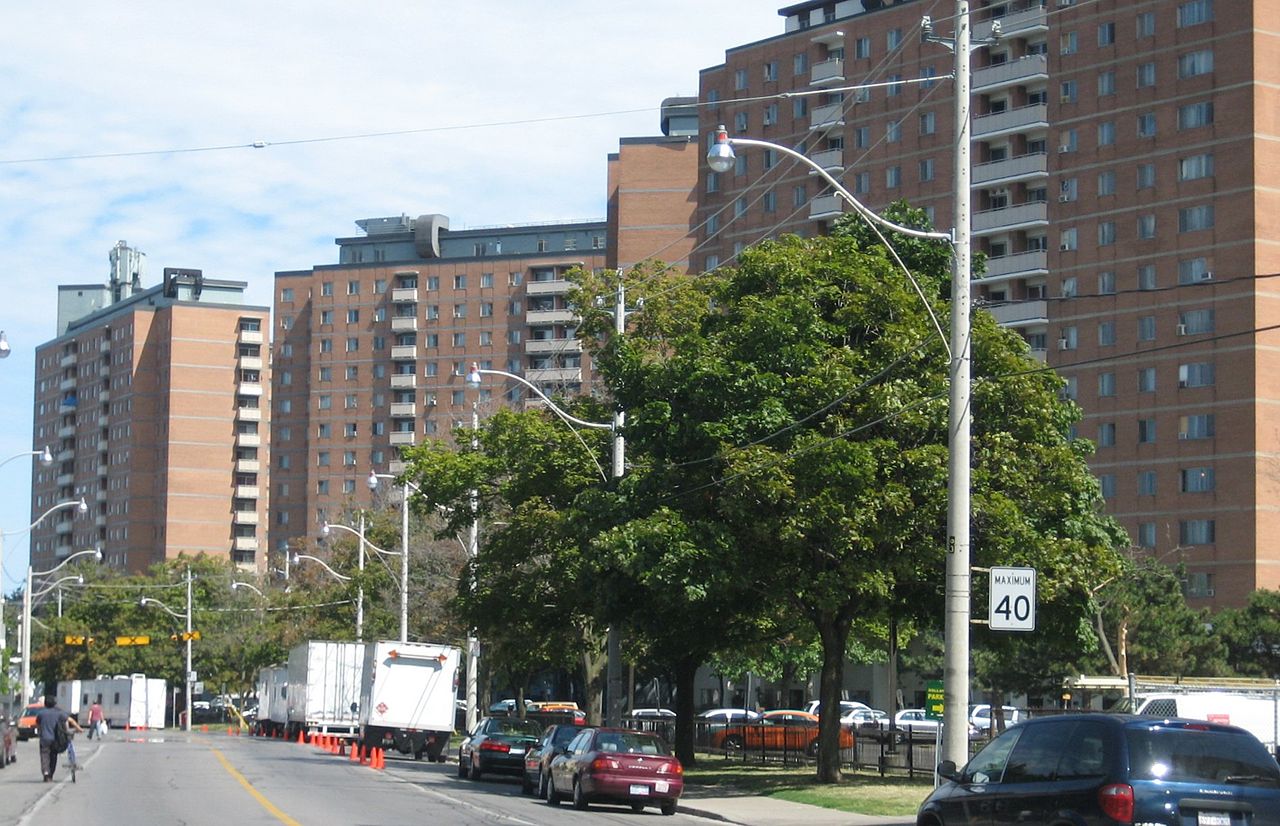Reducing greenhouse gas emissions will require energy transitions in all sectors. This includes housing sector and community housing, and although many municipalities are willing to invest in sustainable renovations and innovations in community housing, such efforts often do not employ the participatory process necessary for supporting sustainability planning and social inclusion. Understanding resident perceptions and needs around energy transitions in community housing systems is an important step toward better inclusion in these transitions. To this end, this study engages diverse stakeholders and actors to examine interconnected socio-economic and environmental challenges surrounding the energy transitions in community housing systems, as well as strategies for addressing said challenges.
Download a Summary Report on the Research Outcomes

Source: Moss Park by SimonP (Wikimedia Commons)
The study will be conducted in two stages. The first stage will involve conducting semi-structured interviews with stakeholders to identify considerations around and relationships among interconnected social, economic, and environmental factors within the CHS. The second stage will involve stakeholder workshops in a fuzzy cognitive mapping exercise, which is a semi-quantitative participatory research tool for analyzing complex and hard-to-model systems using stakeholder knowledge and perception. Questions will guide these activities include:
- What are the socio-economic and environmental challenges associated with the energy transition process in community housing systems?
- How are these challenges interconnected, and how do they affect/impact the community housing systems?
- What are the existing and potential future strategies that could make community housing systems more sustainable and resilient?
The study is part of a larger research effort led by Dr. Runa Das in the College of Interdisciplinary Studies, Royal Roads University.
